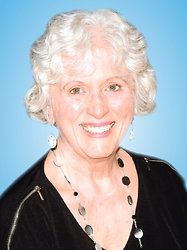I've had occasion to 'be there' for other people and I've certainly needed others to 'be there' for me. Is there anyone among us who hasn't?
We always want to help those we love when they need us most. The question is how to do it best. Do we simply listen to others when they are in emotional pain or do we give them advice or should we practice what some call tough love?

These are all important questions. And I think the answers vary.
Listening is always a good first step. We need to actually hear and understand what a loved one is saying and let them know we care. Giving them effective listening feedback is a good way to let them know we heard and to let them hear their own words as well as speak them.
There is, of course, a point where we have heard the same thing over and over and that is when we aren't helping someone when we continue to listen. There comes a time when we gently, but firmly, help another to know when enough is enough.
My sister always recognized a 'do loop.' A do loop is a another way to say that crazy is defined as doing the same thing over and over and expecting a different result. I've been that kind of crazy. That's why my sister and my best friend both did something for me that I'll never forget.
'If you don't do something different this time,' each of them said, 'I don't want to hear about the problem again. I will still love you, but I won't listen to it again knowing you aren't changing it.'
I was shocked. It was the equivalent of having ice water thrown in my face. And it worked. I knew in that moment that I had to do something different. If these two people who had been there for me for so many years had had enough, so had I. I would do something different. It is possible to make a new life. For some of us it is changing life partners. For some it is changing habits. For others it is . . . (fill in the blank).
One thing is certain - we can't make anyone else feel anything. We can only let them know how we feel. We can share personal experience. Letting another know that we've 'been there' is an instant connection. It is true that no one really knows how something feels if they haven't walked in those shoes.
Giving advice should be left to professionals in order to 'do no harm.' Few among us resist the temptation, however. Exploring or offering options may be safest. 'If you leave him, you can stay with me while you find a job' or 'If you want to go to rehab, I'll help pay for it' are options, not directions, like 'Leave him today!'
We can make another person do something - for a while - if we have some power over them. But that has negative consequences, teaching them about power instead of correct behavior. What often ends then is the relationship rather than unacceptable behavior.
Tough love may be the most difficult. If a loved one is on drugs, we can begin by not giving them spending money and may quickly escalate to changing the locks. Recognizing when tough love is needed is not always so clear.
Our primary responsibility is to ourselves. We have to put that oxygen in the airplane over our faces first. Only then can we save another.
I believe the most effective help comes from love that is steadfast and consistent and clear. My sister and best friend didn't tell me what I had to do to change my life. They pointed out the need for change, affirmed their unending love, and set their boundaries at not hearing the same ol', same ol' anymore.
Jean Loxley-Barnard has been a writer all her life and studied both sociology and psychology at George Washington University where she earned a B.A. Her company, The Shopper, Inc., encompasses all the Loxley-Barnard family publications - The Shopper Magazines and Doctor to Doctor Magazine. She has been in the advertising, consulting and publishing business for 39 years.

